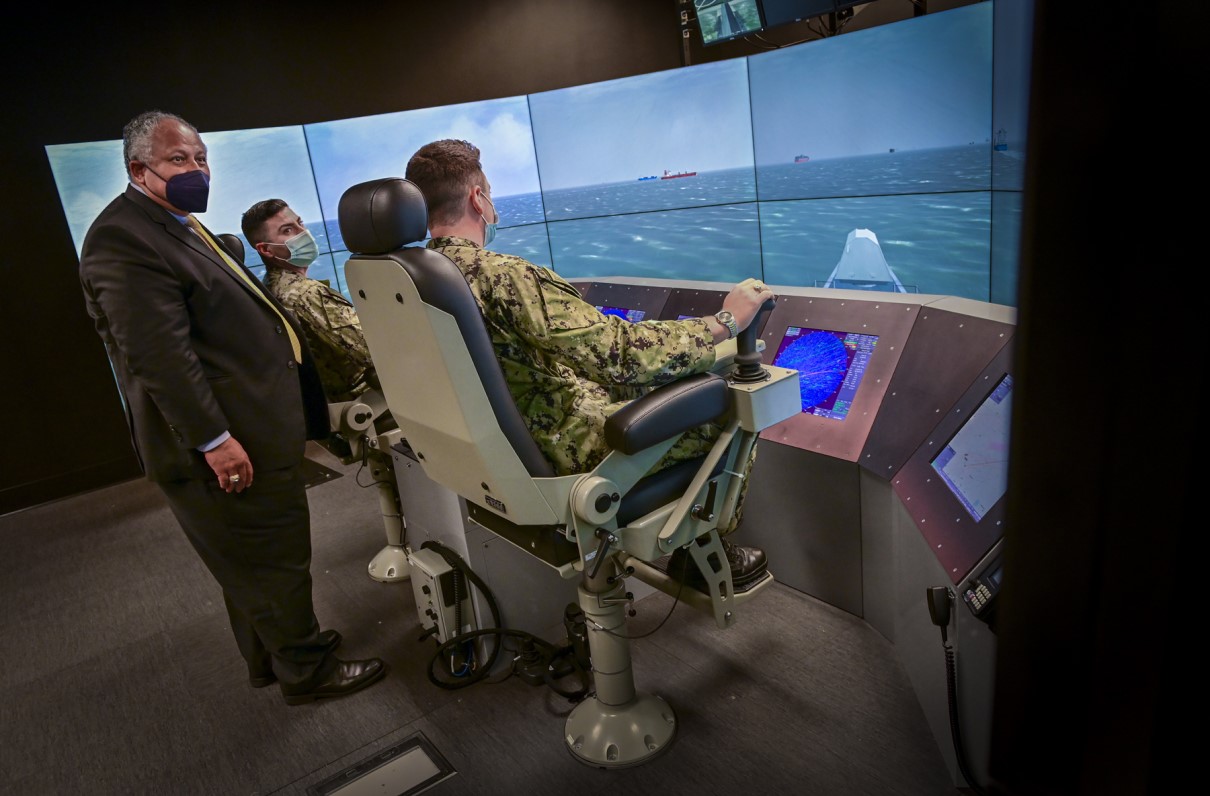This article by Alex Wilson originally appeared on Stripes.com. Stars and Stripes serves the U.S. military community by providing editorially independent news and information around the world.
High stress, overwhelming administrative requirements and a “toxic culture,” among other factors, are discouraging junior surface warfare officers from aspiring to command, according to the results of a Navy survey released this month.
Just 44% of the junior officers polled were interested in serving as a commander. They also cited too much time away from home and a “lack of control,” Naval Surface Forces said June 9 in a report about the survey conducted last year.
Surface warfare officers are trained in the operation of Navy ships at sea and the management of shipboard systems.
The survey is the first of its kind in terms of its depth, according to the Naval Surface Forces report. Additional factors, including challenges from the COVID-19 pandemic and changes to division officer billets, should be considered when interpreting the results.
[RELATED: Air Force Offers Experienced Pilots $50,000 to Extend Their Service]
The survey, which included responses from 2,550 surface warfare officers — ensigns to captains — established that “most officers believe we are not retaining top talent,” and that administrative requirements and the number of unqualified junior officers are adding to frustrations with the service.
The Navy, much like the rest of the U.S. armed services, is grappling with recruitment and retention issues. The Defense Department is “facing its most challenging recruitment environment in 50 years,” according to a March 28 report from the Government Accountability Office.
Factors affecting recruitment include declining interest in the military, education, aptitude and medical and physical fitness; factors influencing retention include job dissatisfaction, quality of life, and sexual harassment and sexual assault, according to the GAO.
“We know our people are our greatest strength and the asymmetric advantage we bring to conflict,” Naval Surface Forces said in its report. “Dismantling the barriers that prevent their success and satisfaction is the surest way to build connectedness in our Force, while producing more positive recruiting and retention outcomes.”
[RELATED: Army Claims Recruiting Improvements, But Offers Few Details]
Of the junior officers — ensigns to lieutenant commanders — the least satisfied group is lieutenant junior grade; they were also the most likely to want to leave the Navy, the least likely to desire command and the most likely to report dissatisfaction as a surface warfare officer.
“Many, if not most, of our officers are making the decision to leave the Navy as [lieutenant junior grades] and we need these officers leading our ships,” the report said.
Senior officers — commanders and captains — responded more favorably in a separate survey included with the report. Of the 855 respondents, 65% were interested in attaining command and most plan to serve beyond 20 years.
Junior and senior officers both indicated they “appreciate the amount of challenge in their work,” take pride in the responsibility they’re given, enjoy working with junior sailors and have positive relationships with their peers. They also responded positively to compensation, education, retirement and health care benefits.
“Conversely, both junior and senior officers are frustrated with the amount of friction caused by administrative tasks, believe work is not equitably distributed, and are displeased with the working hours during shipyard availabilities,” the report said.
[RELATED: Quality of Life Panel, Led by a MOAA Member, Takes Shape in the House]
Naval Surface Forces said it would work with Navy Personnel Command to establish initiatives and “evolving policies” to help address the issues.
“We have taken action,” the report said.
Support Military Spouses
Donate to The MOAA Foundation and support MOAA’s efforts to help military spouses in their career journeys.
